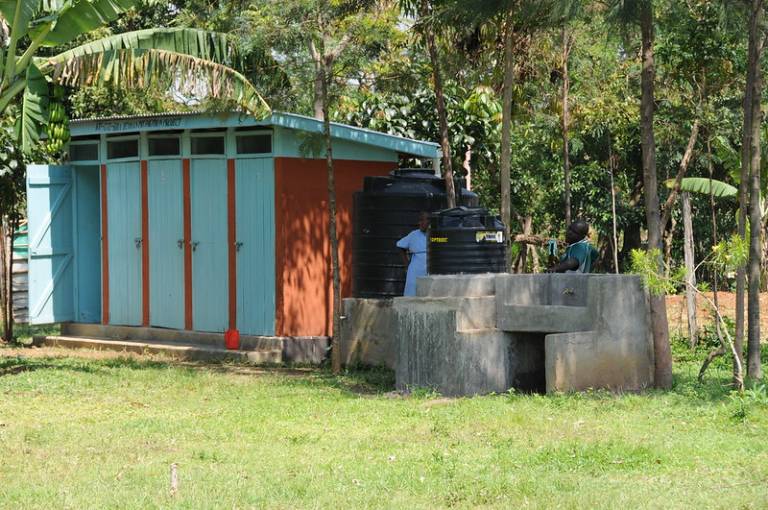WHO has now reduced the scope of the formal Agreement with further negotiations to follow on more difficult issues. It is crucial that all parties recognise the current proposal as a proposal for a framework agreement that sets minimum standards, marking the beginning of a journey, rather than a final agreement. Reducing the risk of future pandemics and ensuring adequate response should be a common concern of all parties tasked with negotiating the Pandemic Agreement; we propose some amendments for consideration.
A pandemic agreement which creates a basis and processes for addressing common public health challenges in a dynamic world is possible. While the negotiations have become distracted and diverted towards geopolitical and commercial trade policy interests, they need to be refocused on common public health priorities across countries and developing a shared understanding of what this entails.
Transforming the Pandemic Agreement into a framework convention creates a new path for collective global health efforts as well as scope for more detailed negotiations on substance.
Further WHO guidance and the April 16 draft of the Pandemic Agreement (A/INB/9R/3), makes clear that the agreement will become a framework convention of parties. Transforming the Pandemic Agreement into a framework convention creates a new path for collective global health efforts as well as scope for more detailed negotiations on substance. This would enable consideration of new options for addressing contested areas and means of implementation as well as provide greater space to address unmet needs in pandemic prevention, preparedness, and response in the longer-term.
The Pandemic Agreement is a beginning rather than an end of a journey
In this analysis we articulate why a framework agreement is a more appropriate approach and where key concerns with respect to the purpose of the agreement reside for the World Health Assembly (WHA). The aims of the Agreement are too important for the whole agreement to be forgotten as result of unresolved questions or diplomatic posturing. Article 2 sets the objective to prevent, prepare for, and to respond to pandemics, with the agreement as whole and its implementation to be guided by principles, including equity, human rights, and solidarity. If we consider the principles, the recital, and further proposals as the start, rather than the end of a journey, the lack of specific well-crafted obligations or requirements is less crucial than for a final agreement.
Pandemic negotiations are not simple and easy concerns to be tackled as business-as-usual amongst diplomats more accustomed to trade negotiations. Understanding and addressing public health needs requires greater multidisciplinary focus and will have to take place under WHO and be linked with the international health regulations (IHR).
Pandemic negotiations are not simple and easy concerns to be tackled as business-as-usual amongst diplomats more accustomed to trade negotiations. Understanding and addressing public health needs requires greater multidisciplinary focus and will have to take place under WHO and be linked with the international health regulations (IHR).
WHO is the right place, and a framework agreement is the right strategy for the negotiations. The recital and articles 3, 5 and 6 emphasize the importance of different capacities and capabilities. This enables negotiations and future action to build on widespread recognition that embedded in the ideals of non-domination,1 solidarity,2 collective action,3 distributive justice, and capabilities-based approaches,4 and thus provide support for further negotiations.
In addition to A/INB/9R/3 (April 2024)5, we analysed previous drafts of the formal text,6,7 publicly available readouts of the negotiating positions of various parties, WHO bureau suggestions, commentaries, and related research. Concerted action by all parties is needed to bring about the underpinning infrastructure required to reduce pandemic propensity and risk as well as to enable early intervention and control of outbreaks at source.
Becoming a global agreement
A functional and realistic Pandemic Agreement should build more explicitly on existing frameworks, commitments, and agreements, from health and elsewhere, using these to pave the way towards a more common understanding of action required to reduce global pandemic risk, improve response, and recovery.8
These frameworks include, for example, the International Health Regulations (IHR) which aim to reduce the risk of exposure to pathogens and disease spread across borders and those arising from other WHO negotiations (e.g. IGWG, WHO-PIP), SENDAI framework (disasters), the Convention on Biological Diversity, its Nagoya Protocol and the Kunming-Montreal Global Biodiversity Framework (biodiversity), the Aarhus Convention (participation, access to justice), UNESCO Convention for the Safeguarding of Intangible Cultural Heritage (cultural heritage), and the UN Agreement on Marine Biodiversity Beyond National Jurisdiction.
Obligations sought in the pandemic agreement are neither new nor unprecedented but remain essential. So far, these obligations are not being given adequate attention in the Pandemic Agreement. While the IHR, CBD and Nagoya Protocol are more explicitly referred to, it is important that the Pandemic Agreement sits within and is linked to wider international law and measures.
The postponing of substantive decisions regarding One Health, Access and Benefit Sharing and Global Supply, while disappointing to an extent, could indeed enable a more overarching, sustainable, and workable approaches to come about. This would serve prevention, the WHO wider definition of health as cited in the third recital of the Agreement, and support para 3 of Article 4 which emphasises strengthening global governance and synergies with other international instruments and their implementation.5
Prioritise and focus on health and health equity
As noted, the Pandemic Agreement is to be guided by equity (article 2); furthermore, the principles include equity (article 3(4)). Equity has relevance to i) pandemic prevention as social inequalities increase the risk of pandemics, ii) pandemic preparedness in terms of resilience and capacities of health systems and health professionals to prepare for pandemics, and iii) pandemic response in access to and availability of vaccines and medical countermeasures at the time of pandemic. Furthermore, pandemics can have syndemic9 impacts, which take place when two or more diseases are clustering, rooted in social conditions, and worsen each other. As syndemic impacts and experiences from the COVID-19 pandemic are still felt in many countries,10 it is important that equity remains at the core of pandemic negotiations.
It is crucial that pandemic negotiations and measures reflect both the steepness of gradient in the relationship between access to health, social and financial resources, and the scale of avoidable pandemic-related harms across countries, populations, and industries. The previous lack of priority afforded to health equity highlights the inadequacies of pre-pandemic global health governance.10-12
Recognise the role of social determinants of health for equity and pandemic prevention
It is thus important that further focus is put on public health and social determinants of health, which are crucial for both pandemic preparedness and prevention as well as their capacities to deliver equity. The draft currently does not include provisions, which would align with existing commitments to reduce pandemic risks and spread of infection associated with precarity or inadequate living conditions. The text does not assure equitable access to essential health and social services or provide mechanisms to secure practical support to comply with public health requirements to isolate or restrict activity. It is essential that both recitals and articles of the agreement recognise the role of social measures and protection, including the aims set out in sustainable development goals (SDGs) 1.3 and 3.8. to ensure that pandemic prevention and preparedness is part of wider health and social measures.
The Pandemic Agreement provides the opportunity for further negotiations towards a global social contract and transformative action,13 including for additional social measures supporting the role that universal services and social protection play in pandemic prevention, preparedness, response, and recovery.
The Pandemic Agreement provides the opportunity for further negotiations towards a global social contract and transformative action,13 including for additional social measures supporting the role that universal services and social protection play in pandemic prevention, preparedness, response, and recovery. Achieving this requires a vision and an understanding of what pandemic preparedness would imply for public health, health systems, and public policies.
This includes how One Health as well as a focus on intersectoral action and Health in All Policies, are manifest and how they are understood as part of whole of government and whole of society approaches. It thus concerns a wider need to focus on intersectoral questions, including pandemic concerns arising from deforestation and climate change. It is crucial that intersectoral focus is not reduced only to the empowerment of communities, but as part of government obligations.
Ensure adequate training and knowledgeable workforce for pandemic prevention
We propose that the Agreement and its implementation consolidates, applies, and builds on existing commitments to health equity, social determinants of health and universal health coverage as expressed in recitals 12 and 16. It is important to ensure that governments act to ensure education and training, not only for One Health, and for specialists, but that professionals and policymakers across and beyond the health system are trained in pandemic preparedness. This is lacking in the April 16 document. For example, a critical review of the COVID-19 pandemic informs the importance of reimagining health systems that centre primary health care and public health action to prevent, respond to, and control future pandemic outbreaks,14 essential to realise aims of Article 6 on preparedness, readiness, and resilience. While the April 16 draft takes up social policies, it could be more explicit on the necessities of broader social security measures as an essential part of pandemic preparedness and response.
Pandemics are a common threat concerning all Member States
All Member States will need support to take measures that reduce the risk of future pandemics. While jurisdictional approaches are essential, pandemic prevention and response also requires coordination across borders. Countries cannot manage alone the reinforcing nature of the risk of outbreaks of novel diseases and re-emergence, spillover and spillback associated with animal sources,15 loss of ecosystems, and biodiversity through the combined impact of land use changes and the climate crisis.16,17
Pandemics are crises where ignorance and exploitation of privileges of the few can become costly for all. This applies to individuals, countries, and corporations.
This is particularly the case when conflicts arise between parties where there are asymmetries of power or resources, for example, between national and international interests or between countries and transnational corporations that favour governance models that enable them to pursue their trade and commercial goals.18,19 Pandemics are crises where ignorance and exploitation of privileges of the few can become costly for all. This applies to individuals, countries, and corporations.
Pandemics should not be opportunities for profiteering and exploitation of privileges
The proposed establishment of the Committee E for emergencies as part of the WHA proposed resolution could signal a realistic approach ahead under WHO and highlight the importance of international cooperation and Article 19.5,20 Charitable ad hoc measures are not an effective approach to resolving pandemics. This should be the lesson learned from COVID-19. Furthermore, experience of the impact of previous serious outbreaks and pandemics, including COVID-19, on low-and-middle income countries (LMIC) with limited capacity for mass production of pandemic-related essential goods, means that they need the Agreement to function as an enforcement mechanism to protect LMIC populations – as well as smaller high-income economies – from commercial exploitation during a pandemic.
Charitable ad hoc measures are not an effective approach to resolving pandemics. This should be the lesson learned from COVID-19.
The text provides little comfort that profiteering by the global companies providing products in COVID-19 will not happen again. This corporate behaviour was linked with the unwillingness of some governments and multilateral bodies to use existing mechanisms to effect action, the undermining of COVAX, and prioritising interests of vaccine producers in high-income countries over at-risk populations. It is essential that future negotiations will ensure adequate measures for both pandemic prevention and control as well as response. It is crucial that also Article 12 on access and benefit sharing considers both prevention and response.
In the text on Pathogens Access and Benefit Sharing system (PABS) material and information means the biological material from a pathogen with pandemic potential, as well as sequence information relevant to the development of pandemic-related health products. The definition of PABS material is thus too narrow. When a health risk is just emerging, it is not possible to decide if material is of pathogenic potential or if a health risk or concern exists. The PABS system will need to be negotiated on the ground of premises, which apply not only to response, but to the prevention and control of pandemics. It must be universal and consistent with respect to health concerns. The agreement should cover sequence information in respect of pathogens (with the wider definition we have suggested) and should not be confined to information relevant to the development of health products.
Ensure policy space for pandemic measures
The Pandemic Agreement can enable governments to ensure that obligations apply across all sectors. It thus provides a fairer context for businesses and competition across countries. However, at the core of the purpose of any pandemic agreement remains the need to prioritise population health over profits and private rights. This is essential to ensure that the avoidable mistakes during the COVID-19 pandemic associated with vaccine inequity and lack of pandemic essentials will not be repeated.
At the core of the purpose of any pandemic agreement remains the need to prioritise population health over profits and private rights. This is essential to ensure that the avoidable mistakes during the COVID-19 pandemic associated with vaccine inequity and lack of pandemic essentials will not be repeated.
Pandemics require extraordinary measures. Governments already have cross sectoral responsibilities to support employers and staff during emergencies to ensure the availability of essential goods and functions as well as to limit the risk of legitimate private or public sector entities collapsing.8 In addition to reduced instability, the Agreement could also deliver on transparency of contracts and provision of improved pandemic control, including through enhanced support for health systems and primary health care.
Changing global relationships for health
It is important that all governments recognise that while solidarity is in the common interest of all countries, lack of solidarity can cast a long geopolitical shadow and lack of trust. Solidarity has become part of the proposed text in recital 6 and as part of principles set in Article 3.
It is important that all governments recognise that while solidarity is in the common interest of all countries, lack of solidarity can cast a long geopolitical shadow and lack of trust.
Overcoming stigma and realising solidarity among national states (in the form of international cooperation) requires more than institutional and international recognition of their agency.21 It needs material support (know-how, economic resources, etc.) and governance of shared participation in decisional and executive processes. Recognising a national state’s existence and political legitimacy is a necessary but not sufficient condition for guaranteeing its capacity to prevent, prepare, respond, and recover from shocks such as pandemics. In the context of pandemics, shared economic and scientific resources, political institutions and procedures are pivotal for protecting all countries. The wording of Article 10 should thus include and reflect the wider principles of solidarity and all implementation steps should engage explicitly with solidarity.
Pandemic agreement as means to enhance predictability and trust
No Pandemic Agreement should be led by trade or geopolitics; its foundations should be common and shared public health concerns. Negotiations on One Health, for example, should contribute to strengthening health systems and existing public health institutions within countries, not be established as a parallel vertical programme. This should be made clear in article 5 and in future provisions under this recital.
Financing mechanisms should complement and support existing measures and lessons learned from ineffective, costly, or dysfunctional provisions for financing. Approaches to be taken to financial reprogramming and innovative financing mechanisms, and their limits, thus need to be explained and discussed more explicitly and broadly during the negotiation process. This is crucial to avoid financialization and unwise use of public resources in all countries.
Pandemic negotiations will need to enhance the level of ambition for public health measures. For example, the proposed One Health description and action in article 5(3) fall short of those set out by the One Health High-Level Expert Panel (OHHLEP).22 As negotiations continue, the level of ambition on substantive issues needs to rise. This may be easier through more specific negotiations and working groups under the Pandemic Agreement in contrast to a single action diplomatic INB, however, more clarity about consistency with the WHO Expert Panel is needed. The voice of public health experts and scientists is a fundamental part of future work. We suggest that in the WHA resolution guidance in 8(3) and 9(3) makes clear that public health experts and scientists are to be included as experts in the groups to be established.20
An international agreement will not solve the challenges of the next pandemic on its own, but it can provide essential operational policy space for governments and public health agencies globally. Furthermore, it can help in building trust amongst populations and industries in understanding and anticipating how and on what ground governments have prepared for and how they will respond to the next pandemic. Negotiations on the pandemic agreement can still contribute to and support common global public health priorities and needs to be given a chance in the next World Health Assembly.
This analysis is part of Tampere University Research Council of Finland funded TIPU-project interdisciplinary output with professors Alison McCallum from Edinburgh University, Abbe Brown from Aberdeen University, and Tampere University researchers Lynda Gilby, Corrado Piroddi, Amitabha Sarkar, Chloe Stephenson, and Meri Koivusalo.
References:
- Lovett F. A general theory of domination and justice. Oxford: Oxford University Press; 2010. p. 190–232.
- Honneth, Axel. Freedom’s right. Ganahl J, translator. Cambridge: Polity Press; 2014.
- Harring N, Jagers SC, Löfgren Å. COVID-19: Large-scale collective action, government intervention, and the importance of trust. World Dev. 2021; 138:105236. DOI: 10.1016/j.worlddev.2020.105236
- Venkatapuram, S. Chapter D-1: How should we allocate resources during a pandemic? In: Flood CM, MacDonnell V, Philpott J, Thériault S, Venkatapuram S, editors. Vulnerable: The Law, Policy and Ethics of COVID-19. Ottawa: University of Ottawa Press. 2020. p. 313–28.
- WHO. Proposal for the WHO Pandemic Agreement. World Health Organisation. https://sovereigntycoalition.org/wp-content/uploads/2024/04/APR-24-Proposal_For_The_Who_Pandemic_Agreement.pdf Date: April 16, 2024. Date accessed: April 24, 2024
- WHO. Revised draft of the negotiating text of the WHO Pandemic Agreement. World Health Organisation. https://apps.who.int/gb/inb/pdf_files/inb9/A_inb9_3-en.pdf Date: March 13, 2024. Date accessed: March 30, 2024
- WHO, Proposal for negotiating text of the WHO Pandemic Agreement. World Health Organisation. https://apps.who.int/gb/inb/pdf_files/inb7/A_INB7_3-en.pdf Date: October 30, 2023. Date accessed: March 30, 2024.
- Chang SE, Brown C, Handmer J, et al. Business recovery from disasters: Lessons from natural hazards and the COVID-19 pandemic. Int J Disaster Risk Reduct. 2022; 80: 103191. DOI: 10.1016/j.ijdrr.2022.103191.
- Singer M, Bulled N, Ostrach B, Mendenhall E. Syndemics and the biosocial conception of health. Lancet 2017: 389:10072:941-950
- McGowan V, Bambra C. COVID-19 mortality and deprivation: pandemic, syndemic, and endemic health inequalities. The Lancet Public Health. 2022; 7: e966–75. DOI: https://doi.org/10.1016/S2468-2667(22)00223-7.
- Mac-Seing M, Gidey M, Di Ruggiero E. COVID-19-related global health governance and population health priorities for health equity in G20 countries: a scoping review. Int J Equity Health. 2023; 22: 232. DOI: https://doi.org/10.1186/s12939-023-02045-8
- Mac-Seing M, Di Ruggiero E. The intersections of COVID-19 global health governance and population health priorities: Equity-related lessons learned from Canada and selected G20 countries. Public Health Rev. 2024; 45:1606052. DOI: https://doi.org/10.3389/phrs.2024.1606052
- UNRISD. Crises of Inequality: Shifting power for a new eco-social contract. United Nations Research Institute for Social Development, Geneva. https://cdn.unrisd.org/assets/library/reports/2022/full-report-crises-of-inequality-2022.pdf Date: October 2022. Date accessed: April 26, 2024.
- Priya R, Sarkar A, Das S, Gaitonde R, Ghodajkar P, Gandhi MP. Questioning global health in the times of COVID-19: Re-imagining primary health care through the lens of politics of knowledge. Humanit Soc Sci Commun. 2023; 10: 1–11. DOI: https://doi.org/10.1057/s41599-023-01741-8
- Li Q, Bergquist R, Grant L, Song JX, Feng XY, Zhou XN. Consideration of COVID-19 beyond the human-centred approach of prevention and control: the ONE-HEALTH perspective. Emerg Microbes Infect. 2022; 11: 2520–8. DOI: 10.1080/22221751.2022.2125343
- Plowright RK, Reaser JK, Locke H, et al. Land use-induced spillover: a call to action to safeguard environmental, animal, and human health. Lancet Planet Health. 2021; 5: e237–45. DOI: https://doi.org/10.1016/S2542-5196(21)00031-0
- Lawler OK, Allan HL, Baxter PWJ, et al. The COVID-19 pandemic is intricately linked to biodiversity loss and ecosystem health. Lancet Planet Health. 2021; 5: e840–50. DOI: 10.1016/S2542-5196(21)00258-8
- Bartley T. Transnational corporations and global governance. Annu Rev Sociol. 2018; 44: 145–65. DOI: http://dx.doi.org/10.1146/annurev-soc-060116-053540
- Madureira Lima J, Galea S. Corporate practices and health: a framework and mechanisms. Glob Health. 2018; 14: 21. DOI: https://doi.org/10.1186/s12992-018-0336-y
- WHO. WHA 77.1. Pandemic Agreement: INB WHA 77.1 Resolution. Discussion Draft. World Health Organisation, Geneve. Date: April 16, 2024.
- Ikäheimo H. Agency and its recognition in international relations. Glob Discourse. 2024; 14: 174–9. DOI: 10.1332/20437897Y2023D000000029
- One Health High-Level Expert Panel (OHHLEP), Adisasmito WB, Almuhairi S, Behravesh CB, et al. One Health: A new definition for a sustainable and healthy future. PLoS Pathog 2022; 18: e1010537. https://doi.org/10.1371/journal.ppat.1010537






